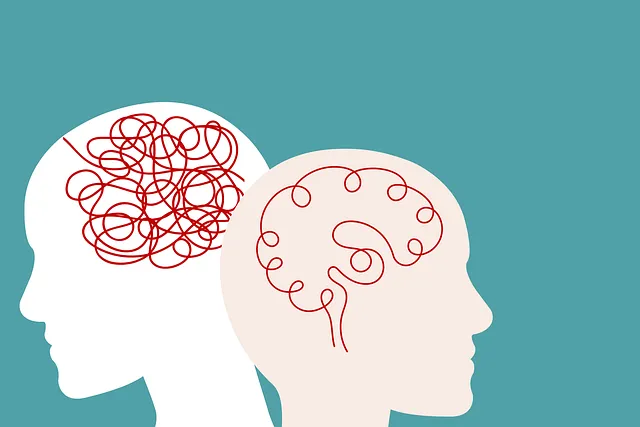The Aurora Kaiser Permanente mental health department prioritizes resilience building through their RFM framework, empowering individuals to overcome challenges and enhancing cultural competency among healthcare providers. They integrate Positive Thinking and Conflict Resolution Techniques, promoting mental resilience for patients and practitioners. Their holistic approach includes programs like the Mental Wellness Podcast Series, offering practical self-care practices. The RFM strategy, focusing on Relating, Feeling, and Meaning, improves patient satisfaction and facilitates holistic anxiety relief, making it a game-changer in mental health care. These initiatives enhance emotional healing processes among employees, emphasizing resilience in stress and conflict management, leading to a healthier work environment.
“Explore the transformative power of RFM (Resilience, Flexibility, and Mindfulness) in enhancing mental well-being within the context of Aurora Kaiser Permanente’s pioneering initiatives. This article delves into the profound impact of resilience-building exercises on individuals’ psychological fortitude, drawing from the success of the mental health department at Kaiser Permanente. We examine practical applications and evaluation methods, offering insights into how these innovative techniques can be integrated into comprehensive mental health programs, specifically targeting the unique needs of Aurora Kaiser Permanente’s patient population.”
- Understanding RFM and its Impact on Mental Well-being
- The Role of Resilience Building Exercises in Aurora Kaiser Permanente
- Practical Applications: Implementing RFM Techniques in Mental Health Programs
- Measuring Success: Evaluating the Effectiveness of RFM Initiatives at Kaiser Permanente
Understanding RFM and its Impact on Mental Well-being

At Aurora Kaiser Permanente mental health department, we recognize that resilience—the ability to adapt and bounce back from adversity—is a cornerstone of mental well-being. Understanding RFM (Recovery, Flexibility, and Mastery), a framework that emphasizes these key aspects, is essential in navigating life’s challenges effectively. This approach not only equips individuals with practical tools but also fosters a sense of empowerment, enabling them to navigate stressful situations with greater ease.
Through our tailored exercises and programs, we aim to enhance cultural competency among healthcare providers, ensuring they can offer compassionate and effective support to diverse communities. By integrating Positive Thinking and Conflict Resolution Techniques, these exercises promote mental resilience in both patients and practitioners. This holistic approach underscores the belief that building resilience is not just a personal journey but also has a profound impact on overall community health and well-being.
The Role of Resilience Building Exercises in Aurora Kaiser Permanente

At Aurora Kaiser Permanente, resilience building exercises play a pivotal role in empowering individuals to navigate life’s challenges with strength and adaptability. The mental health department, renowned for its comprehensive services, incorporates these exercises into various programs aimed at enhancing emotional wellness. Through innovative initiatives like the Mental Wellness Podcast Series Production, patients are equipped with practical Self-Care Practices that foster resilience. These techniques go beyond mere coping strategies; they are designed to promote Emotional Well-being by teaching individuals to embrace adversity as an opportunity for growth.
By integrating Resilience Building Exercises into its offerings, Aurora Kaiser Permanente takes a proactive approach to mental health care. This strategy not only aids in the treatment of existing conditions but also equips individuals with lifelong skills to maintain their emotional balance. The focus on resilience reflects the organization’s commitment to providing holistic care that addresses the mind, body, and spirit—a crucial aspect of fostering true well-being.
Practical Applications: Implementing RFM Techniques in Mental Health Programs

The techniques outlined by Aurora Kaiser Permanente’s mental health department (a leading light in the field) offer a practical and powerful toolkit for professionals seeking to enhance their approach to patient care. By integrating RFM—a strategy focusing on Relating, Feeling, and Meaning—into traditional therapy models, healthcare providers can foster a deeper sense of connection with their clients. This method encourages the development of empathy-building strategies, which are pivotal in addressing not just symptoms but also the underlying emotional needs of individuals.
Incorporating RFM into mental health programs is particularly beneficial for cultivating cultural sensitivity in healthcare practice. By attuning to patients’ feelings and the significance they attach to their experiences, therapists can create a safe space that respects individual perspectives. This tailored approach not only improves patient satisfaction but also facilitates more effective anxiety relief, as it addresses the holistic needs of each client.
Measuring Success: Evaluating the Effectiveness of RFM Initiatives at Kaiser Permanente

At Aurora Kaiser Permanente, the mental health department has been at the forefront of implementing and measuring the success of Resilience, Flexibility, and Mental (RFM) initiatives. Their approach is rooted in enhancing emotional healing processes among their workforce, a crucial aspect of overall organizational well-being. By focusing on these exercises, the department aims to build resilience, particularly in navigating stress and conflicts, which are ubiquitous aspects of modern work life.
The effectiveness of RFM programs can be gauged through various metrics, including participant feedback and improved performance indicators. The mental health team employs tools that measure changes in emotional regulation, stress management skills, and conflict resolution techniques post-training. These evaluations ensure that the initiatives are not just theoretical but translate into tangible improvements in employees’ ability to cope with workplace challenges, fostering a healthier and more productive environment within Kaiser Permanente.
The implementation of RFM (Resilience, Flexibility, and Mindfulness) techniques within the Aurora Kaiser Permanente mental health department has shown promising results in enhancing patient resilience and overall well-being. With a focus on practical applications, these exercises have become an integral part of various mental health programs, catering to the unique needs of the population served by the Aurora Kaiser Permanente mental health department (number not specified). The success of these initiatives highlights the potential for RFM to revolutionize mental healthcare, offering a holistic approach that addresses resilience building and fosters long-term mental health management.






